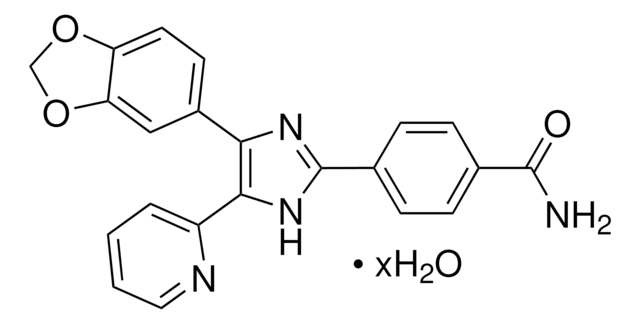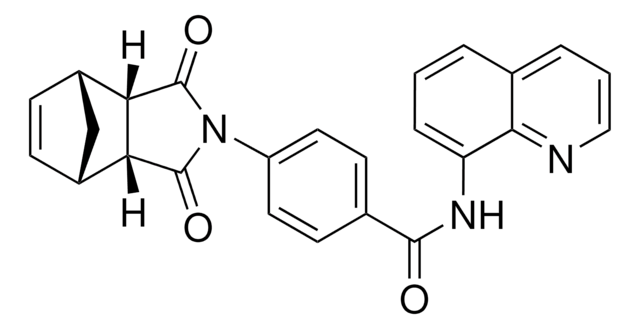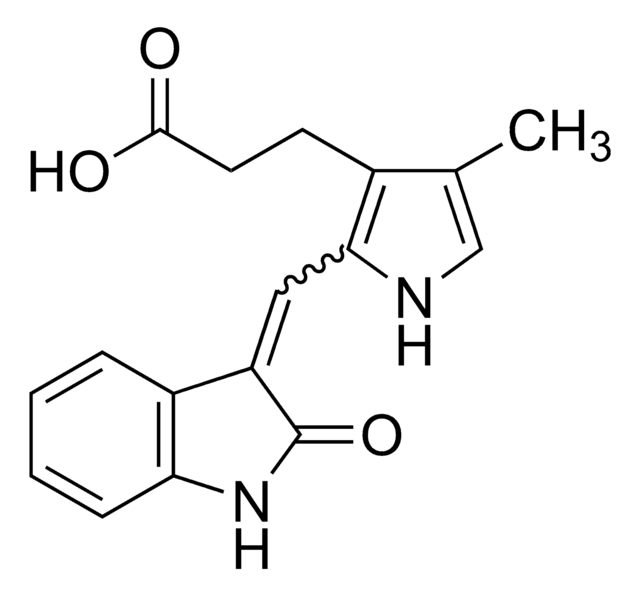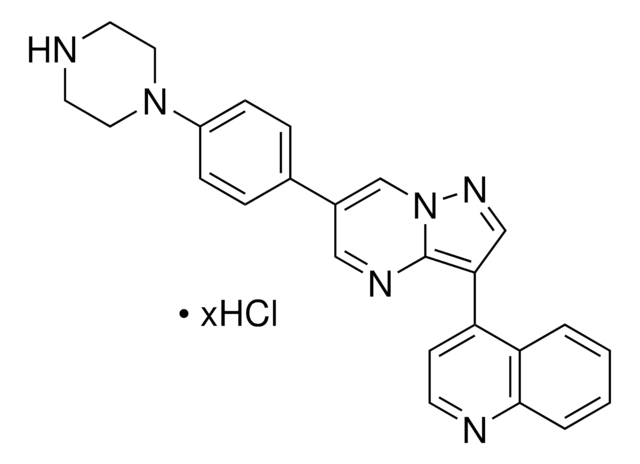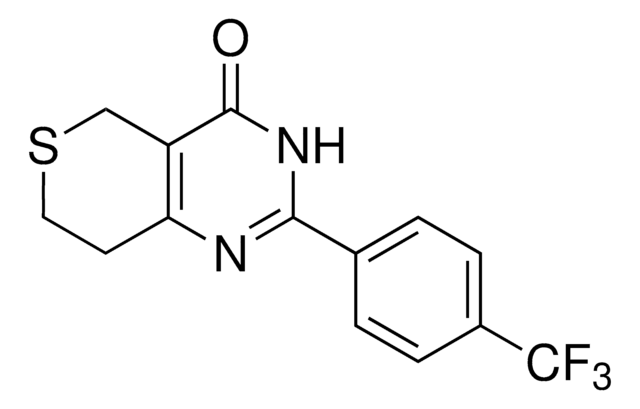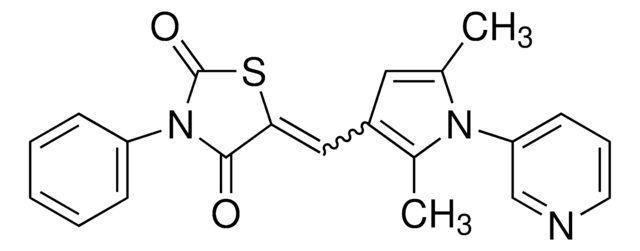I0536
IWP-2
≥98% (HPLC), powder, Wnt antagonist
Synonym(s):
N-(6-Methyl-2-benzothiazolyl)-2-[(3,4,6,7-tetrahydro-4-oxo-3-phenylthieno[3,2-d]pyrimidin-2-yl)thio]-acetamide
About This Item
Recommended Products
product name
IWP-2, ≥98% (HPLC)
Quality Level
Assay
≥98% (HPLC)
form
powder
storage condition
desiccated
solubility
DMSO: 2 mg/mL, clear (warmed)
storage temp.
room temp
SMILES string
Cc1ccc2nc(NC(=O)CSC3=NC4=C(SCC4)C(=O)N3c5ccccc5)sc2c1
InChI
1S/C22H18N4O2S3/c1-13-7-8-15-17(11-13)31-21(23-15)25-18(27)12-30-22-24-16-9-10-29-19(16)20(28)26(22)14-5-3-2-4-6-14/h2-8,11H,9-10,12H2,1H3,(H,23,25,27)
InChI key
WRKPZSMRWPJJDH-UHFFFAOYSA-N
Application
Biochem/physiol Actions
Storage Class Code
11 - Combustible Solids
WGK
WGK 2
Flash Point(F)
Not applicable
Flash Point(C)
Not applicable
Certificates of Analysis (COA)
Search for Certificates of Analysis (COA) by entering the products Lot/Batch Number. Lot and Batch Numbers can be found on a product’s label following the words ‘Lot’ or ‘Batch’.
Already Own This Product?
Find documentation for the products that you have recently purchased in the Document Library.
Customers Also Viewed
Our team of scientists has experience in all areas of research including Life Science, Material Science, Chemical Synthesis, Chromatography, Analytical and many others.
Contact Technical Service


